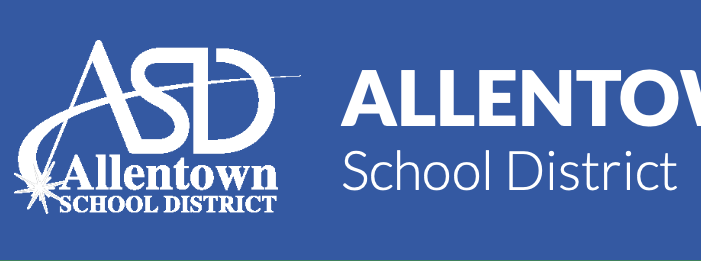Allentown School District has conducted virtual-only learning thus far but is looking to offer a hybrid learning option at the beginning of the academic year’s fourth quarter, which starts on April 13.
The district decided to extend the remote learning model into the third quarter of the school year on Jan. 14. The school board will make a new decision about whether to offer hybrid learning or not at the start of the fourth quarter.
Allentown School District is the only school district in the Lehigh Valley still without an in-person learning option.
Dr. Lucretia Brown, deputy superintendent of Equity, Accountability and School Improvement for Allentown School District, is working alongside administrators to prepare for either the continuation of remote learning or a new hybrid option for the first time this year.
“I think most of the concerns we have we’re addressing now,” Brown said. “We’re preparing for any areas that could be potential challenges.”
According to Brown, the district is currently working to upgrade classrooms and teacher technology packages in an effort to get ready for hybrid learning if the decision is made.
“As challenges present, we have our teams ready, and academics and our finance department ready to address them as best we can to provide the resources needed that are based on the situation,” Brown said.
Principal Michael Makhoul of Louis E. Dieruff High School had three words of guidance for his faculty regarding Allentown School Dsitrict’s future plans: Adapt, improvise and adjust.
Makhoul, a Lehigh alum having received his Masters in Special Education in 2005, oversees all operations at Louis E. Dieruff, a school of approximately 1,870 students. He prioritizes making himself a viable resource for students and faculty and said he is proud of what his school was able to accomplish throughout the year’s challenges.
“We’ve had to adjust to variables well beyond our control,” Makhoul said. “I tried to lead and serve the community controlling the things that are within our grasp. Most things that are within our grasp, we need to make sure we filtered them through the lens of asking, ‘Is this in the best interest of our students’ health, safety, welfare and academic growth? Is this in the best interest of our staff’s health, safety, welfare and maximizing their capacity? Is this in the best interest of our families and community at large?’”
Makhoul said the most crucial aspect of leading fully-virtual school operations is being flexible. With rapid changes to the system, he wants to ensure students and parents have equal access to resources to reach their potential.
He said there are many elements and interacting variables for a functioning school day that are overlooked.
“Think of the back of a watch,” Makhoul said. “You know, the cogs of the wheel are all spinning in the same direction in order for that watch to work correctly and accurately, and consistently. Well, when people think of a school day, they don’t see the behind-the-scenes cogs of the wheel. They just see the clock, they just see the time. Their perceptions are based off of what they see on the surface.”
Makhoul acknowledged the mental health crisis the pandemic poses. He said he prefers the term “physical distancing,” over “social distancing,” because adolescent high schoolers are undergoing a crucial time for development amidst public safety measures to isolate.
He said it is important students remain social despite the distancing.
“We are not created to be social isolates,” Makhoul said. “It’s so critical that we maintain those connections, social connections, emotional connections. Otherwise, it’s to our detriment.”
Jahnia Treadwell, a senior at Louis E. Dieruff, said she found online schooling challenging in the beginning but grew used to it as she created a routine for herself.
“It’s way different than how our high school usually is, but I think everyone is adapting pretty well,” Treadwell said. “And we have so many clubs that are helping students if they need it.”
As the president of her high school’s Key Club, Treadwell has invested in projects to the extent virtual connection allows, since the club cannot volunteer in the community. Treadwell said the club used to hold food drives and bake sales.
Treadwell said the Key Club currently utilizes the app VocalID to record voices reading particular passages in order to provide for students who need assisted technology. She called this initiative the highlight of the club’s latest work.
In a survey the school sent out to students, Treadwell selected “unsure” to the question of whether she would attend and choose a hybrid learning option.
“Even if we did go back to the school, we’d still be using all of our online platforms,” Treadwell said. “It’s basically just the same thing you’d be doing at your house.”
Treadwell said she wants to prevent the risk of getting her family sick at all costs. In addition to her involvement in Key Club, she is on the committee for her high school that will bear the responsibility of monitoring COVID-19 safety and precautions.
Aside from her concerns, Treadwell looks forward to the possibility of her class of 2021 doing a senior walk-through of the school at graduation to see each other for the last time as classmates.






Comment policy
Comments posted to The Brown and White website are reviewed by a moderator before being approved. Incendiary speech or harassing language, including comments targeted at individuals, may be deemed unacceptable and not published. Spam and other soliciting will also be declined.
The Brown and White also reserves the right to not publish entirely anonymous comments.